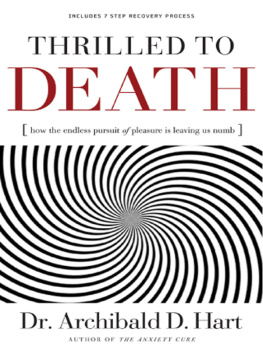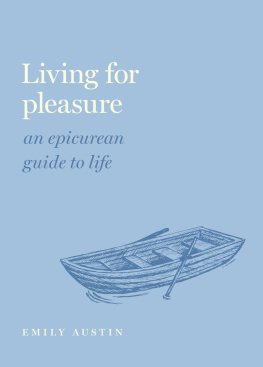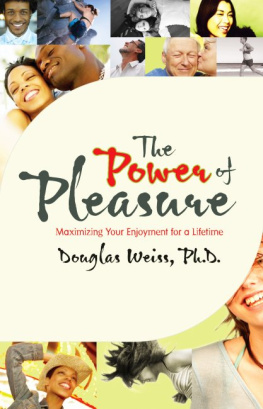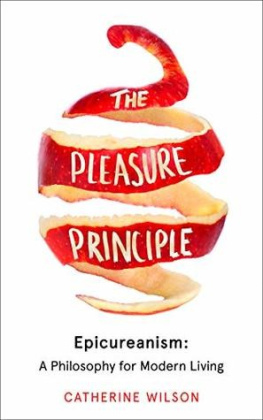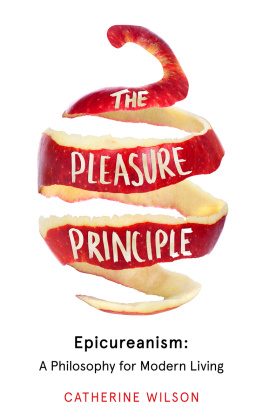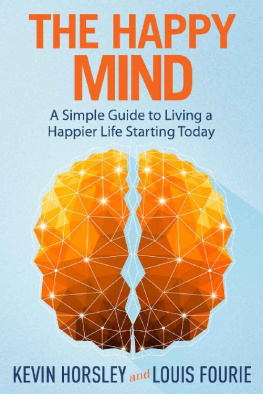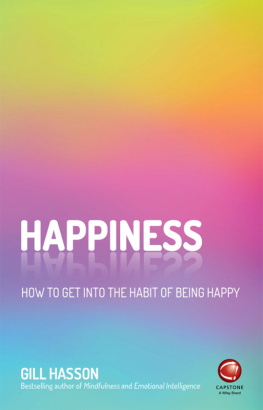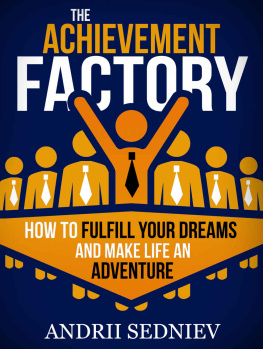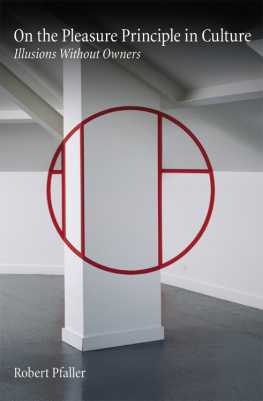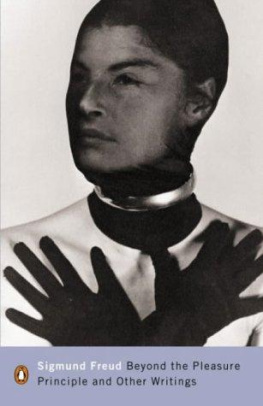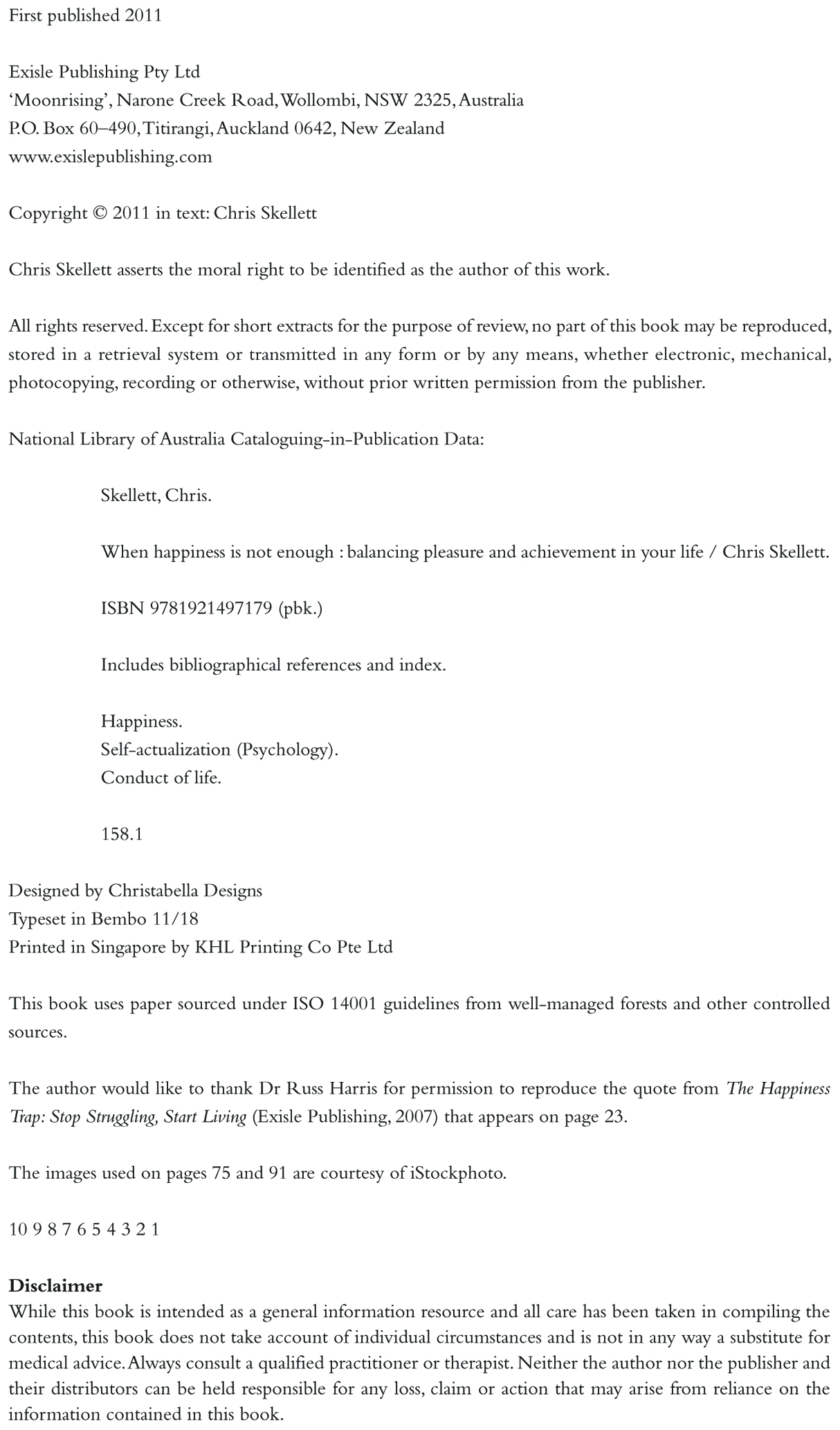
FOR WHOM THIS BOOK IS WRITTEN
This book has been written for anyone whos feeling a little too fat.
Or who drinks a little too much.
Or for anyone whos recently been told to slow down and relax.
Or who feels stressed.
Its for people who know that theyre a little bit lazy.
But its also for those who know that theyre a little intense.
Some wish that theyd done more with their lives.
Others wish that theyd taken more time to play.
These are the people for whom this book is written.
Its a book that invites us all to stop for a moment.
And to think about the choices we make...
Preface
WHEN HAPPINESS IS NOT ENOUGH
Happiness is such a simple, unifying concept. For most of us, happiness is the general ambition that we hold for ourselves in life. We all want to be happy. We all want to die happy.
But do we really know what happiness is? Do we really understand its complexity? Does the concept of happiness mean the same thing to all of us? Does pure joy lie on the same continuum as quiet satisfaction? And does happiness in itself lead us to live a fulfilling life? In short, as we make our way through life, the simple concept of happiness may not really be defined enough to guide us through the complexities that we face.
This book will help us to discriminate clearly between two fundamental types of happiness. It will help us to know ourselves better, and to make active choices towards a more fulfilling life.
The central theme here is that complete happiness is to be found by blending feelings of sensory pleasure with feelings of satisfaction through achievement. We should aim to balance the excitable pleasure of the moment with the deeper satisfaction of achieving our established goals in life.
If we can establish a healthy balance between pleasure and achievement for ourselves, then we are more likely to live a fulfilling life. And by applying the Pleasure/Achievement Principle to the lifestyle decisions we make, we will experience a far deeper sense of personal fulfilment in our lives.
Chapter One
AN INTRODUCTION TO THE PLEASURE/ACHIEVEMENT PRINCIPLE
Everybody wants to be happy. We all know when were happy and when were sad, and our life is full of decisions made in our search for happiness. We make these decisions from moment to moment and from year to year. And usually, we tend to base our decisions on a generalised theme or preference. For example, we might prefer excitement to comfort, or change rather than stability. These trends and preferences are many and varied, and they can all play out in different ways.
But of all the different factors that drive our decisions and shape our behaviour, there is one simple truth that underpins our complex lives more than any other. Specifically, we need to ensure that in all aspects of our lives, we maintain a healthy balance between the drive for pleasure and the drive for satisfaction through achievement. Happiness is to be found by combining them both.
The concepts sound so similar, and both feel good, but a closer analysis shows that they are two very different emotions. We tend to use the words pleasure and satisfaction interchangeably, and we do not take due care in distinguishing between the two. It gives me great pleasure... and I take great satisfaction... are two phrases that sound very much the same. But by failing to discriminate, we fail to balance the two concepts and, as a result, we fail in our efforts to live a balanced and fulfilling life.
The secret to living an enjoyable, rewarding life is to balance pleasure and achievement, and to be mindful of the relative importance of these two key drivers.
The Pleasure/Achievement Principle can be defined thus: In order to live a fulfilling life, we must strike a considered balance between pleasure and achievement.
Essentially, we need to become more aware of whether we tend to seek pleasure in our lives, or whether we instead strive to experience satisfaction through achieving personal goals. In order to develop our awareness of this issue, we will need to look at the two key concepts in a little more detail.
Pleasure
Pleasure is based on short-term gratification. Its fun, its indulgent, and its the basis of humour, enjoyment and a sense of contentment. With pleasure, we live in the moment. We feel alive and we love the sensual delights that are on offer. We relax, we feel comfortable, and we soak up life to the full. Our base instincts are to seek pleasure, and for many, experiencing pleasure is the ultimate goal of a life well lived! We value and define our happiness in this way. We remember the fun that weve had.
When we are pleasure focused, life is to be savoured; it is to be appreciated for the way that it is. We are happy to simply enjoy. We feel relaxed, and we look back on a day of pleasurable experiences. Our smiles are happy smiles.
Satisfaction
Satisfaction is different. It is based on the achievement of personal goals. We set goals, we achieve them, and we feel satisfied as a result. Satisfaction is usually achieved by overriding the short-term pain and discomfort of action in pursuit of a chosen goal. We dig deep and admire our strength and our energy. We value motivation, drive and ambition. We climb mountains; we win gold. We remember the things that weve achieved.
When we are achievement focused, there are always improvements to be made, things to learn and opportunities to explore. We make lists, we work hard, and by the end of the day we are tired. We look back at what we have achieved. Our smiles are satisfied smiles.
***
While pleasure tends to be a transient experience, feelings of satisfaction are usually longer lasting. Some of us look for what there is to be enjoyed in the present, right now. Others look ahead to what could be achieved in the future, and they also look back to remember what has been achieved in the past. They value outcomes that occur over time.
Pleasure, achievement and lifestyle problems
When a pleasure focus becomes excessive, we can find ourselves drifting into a variety of unhealthy lifestyles. Pleasurable indulgence can lead to laziness, depressive lethargy, or self-control issues. We show an excess of what psychologists call consummatory behaviours, where we consume opportunities for pleasure. We seek comfort and contentment in our lives. We often become complacent with ourselves, and our physical health suffers.
When an achievement focus becomes excessive, however, different problems emerge. The drive to achieve can result in stress, anxiety and a generalised inability to relax or feel good about ourselves. We live appetitively, where we are hungry and constantly needing to satisfy our appetite for more. We often carry a generalised restlessness in our daily lives. We are always looking ahead and trying to improve. There is a continual urge to effect change. Life is always full of possibilities, but it can become a tiring theme both for ourselves and for those around us.
Clearly, a number of clinical problems can arise if there is a significant imbalance between pleasure and achievement in our lives.
An excessive focus on pleasure will lead to a certain class of lifestyle problems. Most self-control issues for individualssuch as over-eating, alcohol or substance abuse and gamblingare based on an excessive focus on short-term pleasure. We become over-indulgent.
Next page

